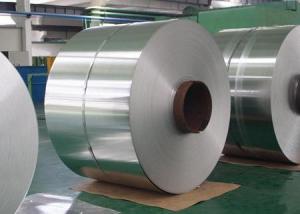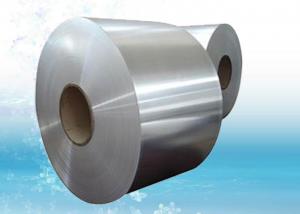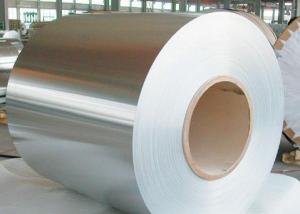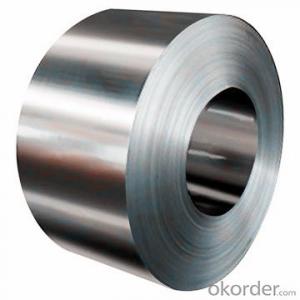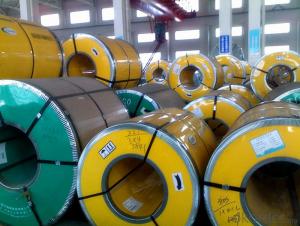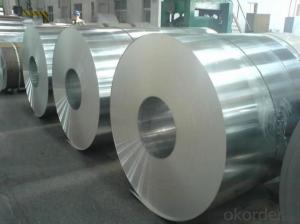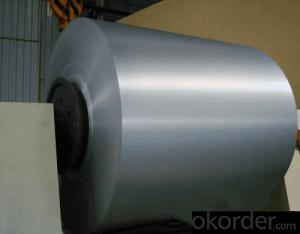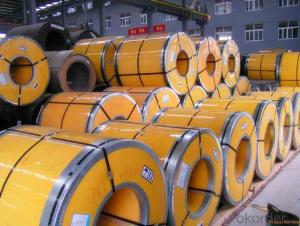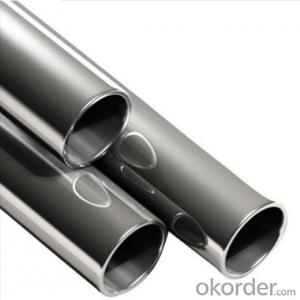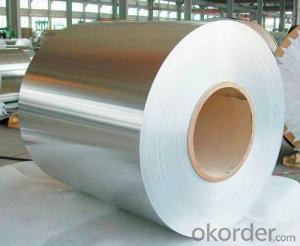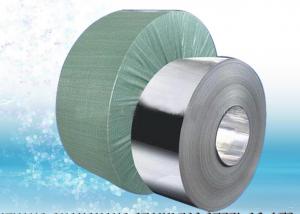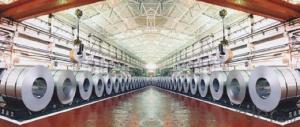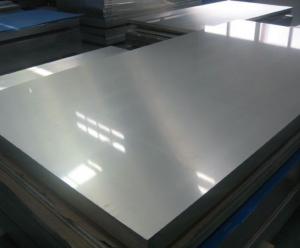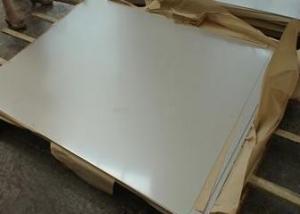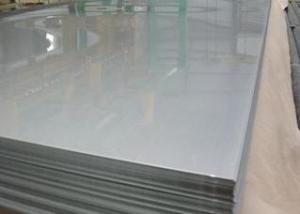AISI 304 Stainless Steel Coil
- Loading Port:
- China Main Port
- Payment Terms:
- TT or LC
- Min Order Qty:
- 1 Ton m.t.
- Supply Capability:
- 1000 Tons Per Month m.t./month
OKorder Service Pledge
OKorder Financial Service
You Might Also Like
AISI 304 Stainless Steel Coil
1. Chemical composition of AISI 304 Stainless Steel Coil
C | Si | Mn | P | S | Ni | Cr |
max0.08 | max1.00 | max2.00 | max0.045 | max0.03 | 8.00-10.50 | 18.00-20.00 |
2. Mechanical properties of AISI 304 Stainless Steel Coil
Yield Strength | Tensile | Elongation | Hardness (HV) | Hardness (HRB) |
≥ 205 | ≥ 520 | ≥ 40 | ≤ 200 | ≤ 90 |
3. Standard of AISI 304 Stainless Steel Coil : AISI, ASTM, GB, EN, DIN, JIS
4. Surface of AISI 304 Stainless Steel Coil : 2B, NO.1, BA, NO.4, Hairline, SB, Mirror finish, Anti-skid, Cherkered etc.
5. Size of AISI 304 Stainless Steel Coil :
Thickness: 0.3-3mm (cold rolled), 3-40mm (hot rolled)
Width: 1000mm or 1219mm or 1240mm for cold rolled, 1500mm for hot rolled.
Length: As customers' request.
6. MOQ of AISI 304 Stainless Steel Coil : 1 Ton
7. Payment terms of AISI 304 Stainless Steel Coil : T/T or L/C
8. Packing of AISI 304 Stainless Steel Coil : Seaworthy package with wooden or Iron pallets with the paper and the steel strip,
or as customers' request.
9. Delivery time of AISI 304 Stainless Steel Coil : Usually about 7 days after we confirming the order, or according to your quantity.
If you have any demand, pls feel free to contact me.
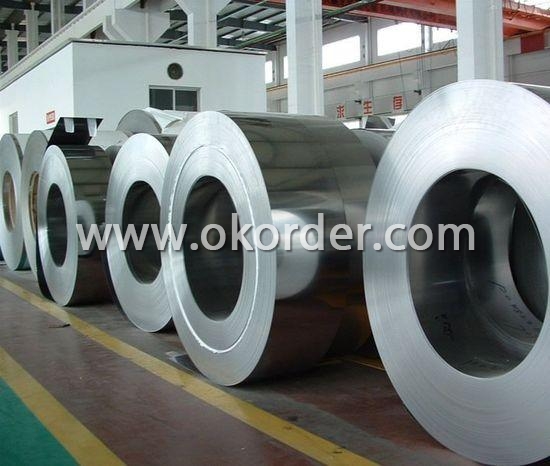
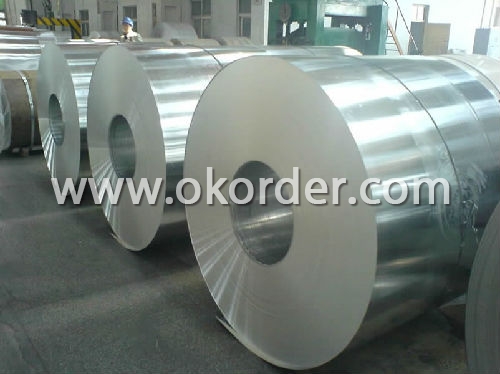
- Q: Can stainless steel strips be used in contact with food?
- Yes, stainless steel strips can be used in contact with food. Stainless steel is a popular choice for food-related applications due to its non-reactive nature, corrosion resistance, and durability. It does not leach any harmful substances into the food and is resistant to staining, making it a safe and hygienic material for food preparation, storage, and serving. Stainless steel strips are commonly used in commercial kitchens, food processing plants, and home appliances such as refrigerators, sinks, and cookware.
- Q: Are stainless steel strips suitable for industrial kitchen equipment?
- Industrial kitchen equipment is highly suitable for stainless steel strips. In the food industry, stainless steel is a popular option because of its exceptional properties. It boasts excellent corrosion resistance, which is essential in an environment exposed to moisture, heat, and various chemicals. This resistance prevents the formation of rust, stains, and other types of degradation, ensuring that the equipment remains durable and long-lasting. Moreover, stainless steel is easy to clean and maintain, promoting hygiene and making it perfect for food preparation areas. It is also non-reactive, meaning it does not affect the taste, smell, or quality of the food being prepared. Additionally, stainless steel has a high strength-to-weight ratio, allowing it to withstand the demands of an industrial kitchen while remaining relatively lightweight. In conclusion, stainless steel strips are an outstanding choice for industrial kitchen equipment due to their corrosion resistance, ease of maintenance, hygienic properties, and strength.
- Q: What are the common uses of stainless steel strips in the automotive engine components?
- Stainless steel strips are commonly used in various engine components in the automotive industry due to their unique properties and advantages. Some of the common uses of stainless steel strips in automotive engine components include: 1. Exhaust Systems: Stainless steel strips are widely used in exhaust systems due to their high temperature resistance and corrosion resistance. They can withstand the extreme heat and corrosive gases produced by the engine, ensuring longevity and durability of the exhaust system. 2. Fuel Injection Systems: Stainless steel strips are used in fuel injection systems, particularly in the manufacturing of fuel rails and fuel lines. The corrosion resistance of stainless steel ensures that the fuel remains uncontaminated and prevents any leakages, improving the overall efficiency and reliability of the system. 3. Heat Shields: Stainless steel strips are utilized in the production of heat shields, which are crucial in protecting sensitive engine components from excessive heat. The high temperature resistance of stainless steel ensures that the heat shield can effectively dissipate or reflect heat, preventing any damage to nearby components. 4. Engine Mounts and Brackets: Stainless steel strips are used in the fabrication of engine mounts and brackets due to their strength and durability. They provide structural support and ensure the secure attachment of various engine components, enhancing the overall stability and performance of the engine. 5. Valve Components: Stainless steel strips are commonly used in the manufacturing of valve components, such as valve springs and valve retainers. The high strength and corrosion resistance of stainless steel allow these components to withstand the high pressures and temperatures within the engine, ensuring smooth and efficient valve operation. Overall, stainless steel strips play a crucial role in automotive engine components by providing durability, corrosion resistance, high temperature resistance, and structural support. These properties make them an ideal choice for various applications, contributing to the overall performance, efficiency, and longevity of automotive engines.
- Q: Can stainless steel strips be used in the food processing equipment industry?
- Yes, stainless steel strips can be used in the food processing equipment industry. Stainless steel is a popular material choice in the food processing industry due to its many beneficial properties. It is corrosion-resistant, which is essential in an environment where food and liquids are present. Stainless steel is also hygienic and easy to clean, making it suitable for equipment that comes into contact with food. Additionally, stainless steel has high strength and durability, ensuring that the equipment can withstand the rigorous demands of the food processing industry. Therefore, stainless steel strips are commonly used in the manufacturing of food processing equipment such as conveyors, mixers, slicing machines, and food storage containers.
- Q: Can stainless steel strips be used in chemical storage tanks?
- Yes, stainless steel strips can be used in chemical storage tanks. Stainless steel is known for its corrosion resistance properties, which makes it suitable for storing various chemicals. It provides resistance to a wide range of corrosive substances, including acids, bases, and solvents. Additionally, stainless steel has excellent strength and durability, allowing it to withstand the harsh conditions often found in chemical storage tanks. Its inert nature also ensures that it does not react with the stored chemicals, thus preserving the integrity of the stored materials. Overall, stainless steel strips are a popular choice for chemical storage tanks due to their corrosion resistance, strength, and durability.
- Q: Can stainless steel strips be welded?
- Yes, stainless steel strips can be welded.
- Q: What are the common uses of stainless steel strips in the semiconductor industry?
- Stainless steel strips have a variety of common uses in the semiconductor industry due to their unique characteristics and properties. Some of the major applications include: 1. Etching Process: Stainless steel strips are often utilized as etching masks during the semiconductor fabrication process. The strips are resistant to various chemical etchants and offer excellent corrosion resistance, making them ideal for protecting specific areas of the semiconductor surface during the etching process. 2. Wafer Handling: Stainless steel strips are used for handling delicate silicon wafers throughout the manufacturing process. The strips provide a clean and contamination-free surface, preventing any damage or contamination that could affect the quality of the wafers. 3. Cleanroom Construction: Stainless steel strips are commonly used in the construction of cleanrooms within the semiconductor industry. These strips are preferred due to their high resistance to corrosion, durability, and ability to withstand harsh cleaning chemicals used in cleanroom maintenance. 4. ESD Protection: Electrostatic discharge (ESD) can cause significant damage to sensitive semiconductor components. Stainless steel strips are used as grounding strips or ESD protection strips to dissipate any static charges and prevent damage to the semiconductor devices during the assembly and testing processes. 5. Heat Exchangers: Stainless steel strips are employed in the construction of heat exchangers used to regulate temperature during various semiconductor manufacturing processes. The strips' excellent thermal conductivity and corrosion resistance make them suitable for transferring heat efficiently while maintaining a clean and sterile environment. 6. Surface Mount Technology (SMT): Stainless steel strips are also used in the SMT process, where electronic components are directly mounted onto the surface of a printed circuit board. The strips serve as solder stencils, facilitating the precise application of solder paste onto the board, ensuring accurate placement of components during the assembly process. Overall, stainless steel strips are valued in the semiconductor industry for their corrosion resistance, cleanliness, durability, and ability to withstand extreme conditions, making them indispensable in various stages of semiconductor manufacturing.
- Q: Are 111 stainless steel strips suitable for medical equipment?
- 111 stainless steel strips are well-suited for medical equipment. In the medical industry, stainless steel is widely utilized because of its exceptional resistance to corrosion, strength, and durability. The AISI 111 grade, also referred to as 111 stainless steel, is a high-chromium stainless steel with low carbon content, providing commendable resistance to corrosion and remarkable formability. It is frequently employed in the production of medical equipment, such as surgical instruments, orthopedic implants, and dental instruments. Additionally, stainless steel is easily cleaned and sterilized, making it a hygienic option for medical applications. In summary, 111 stainless steel strips are an appropriate material for medical equipment due to their combination of corrosion resistance, formability, and cleanliness.
- Q: What is the hardness of stainless steel band 3/4?
- 304 stainless steel is the United States materials and Testing Association (ASTM) named SUS 304 stainless steel brand abbreviation. 304 stainless steel, 1Cr18Ni9., is a widely used austenitic stainless steel.
- Q: What is the tensile strength after annealing of stainless steel strips?
- The tensile strength of stainless steel strips increases after annealing.
1. Manufacturer Overview
| Location | Guangzhou,China |
| Year Established | 2001 |
| Annual Output Value | Above US$0.5 Million |
| Main Markets | Southeast Asia, Europe |
| Company Certifications | ISO 9001:2008; |
2. Manufacturer Certificates
| a) Certification Name | |
| Range | |
| Reference | |
| Validity Period |
3. Manufacturer Capability
| a) Trade Capacity | |
| Nearest Port | Shanghai |
| Export Percentage | 30% |
| No.of Employees in Trade Department | 10 People |
| Language Spoken: | English;Chinese |
| b) Factory Information | |
| Factory Size: | Above 30,000 square meters |
| No. of Production Lines | Above 7 |
| Contract Manufacturing | OEM Service Offered;Design Service Offered |
| Product Price Range | Average |
Send your message to us
AISI 304 Stainless Steel Coil
- Loading Port:
- China Main Port
- Payment Terms:
- TT or LC
- Min Order Qty:
- 1 Ton m.t.
- Supply Capability:
- 1000 Tons Per Month m.t./month
OKorder Service Pledge
OKorder Financial Service
Similar products
Hot products
Hot Searches
Related keywords
